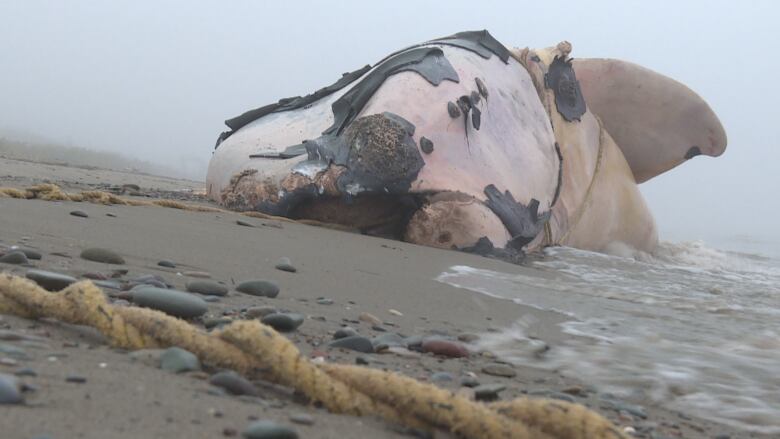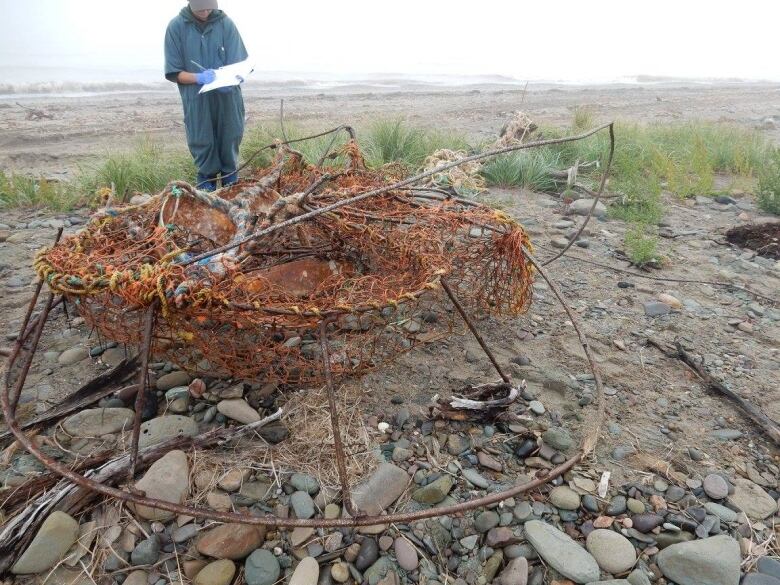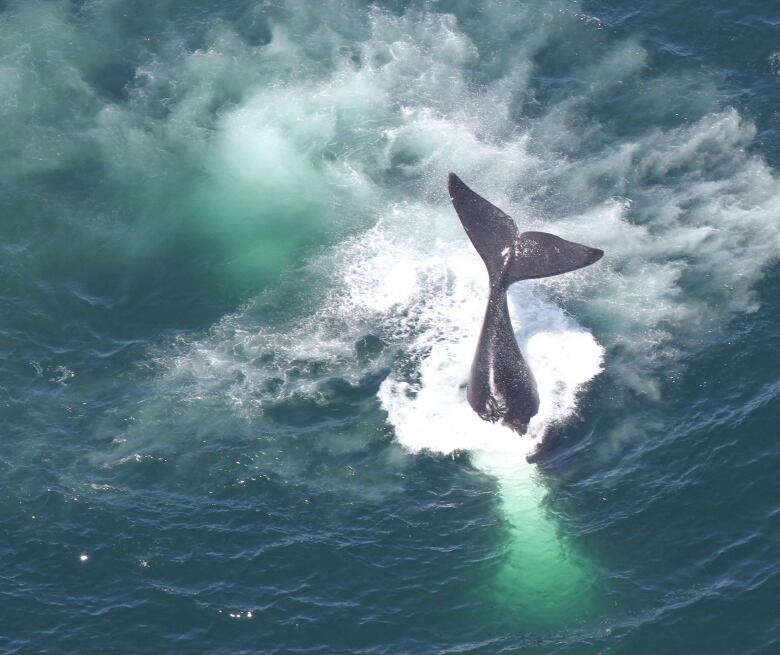Longer snow crab season part of 'perfect storm' causing whale deaths
Fishing industry group says it's looking for ways to prevent Atlantic right whale entanglements

The fishing industry says it's looking for a solution to help prevent North Atlantic right whales from enduring painful, and sometimes deadly, entanglements with fishing gear.
The Maritime Fishermen's Union says a longer snow crab fishing season and an unprecedented number of right whales in the Gulf of St. Lawrence created a "perfect storm" this year for a massive die-off.
Twelve right whales have been found dead in Canadian waters, andanother three have washed up on the east coast of the United States.
- Blunt-force trauma, entanglement blamed in deaths of 7 right whales
- 7 right whales entangled this summer, new data shows
One of theright whales found dead off Canadian shoreshas been confirmed dead as a result of being entangled in fishing gear.
Entanglement is also the suspected cause of death of a two-year-old right whale found in September, covered in deep cuts from heavy ropes.
"This is not something that we had hoped for," said Martin Mallet, interim executive director with the Maritime Fishermen's Union.
"This is a bad, bad thing for the whales, and for the industry."
At least five other whales have been spotted entangled in fishing gear but haven't died from those injuries.

"Our association is being proactive with this issue and there are some consultations that will be going forward with the Department of Fisheries and Oceansas soon as early November," Mallet said.
'Mixed feelings' about speed limit
Ship strikes were the most common cause of death for endangered right whales during the deadly summer.
Scientists who performed necropsies found the animals with internal blunt force trauma.
The federal government has vowed to do whatever it takes to save the endangered species.
Because of larger quotas this year, the snow crab season was longer than usual, although Fisheries and Oceans closed the season a few days early in places as risks to whales in the gulf grew.
The government has also forcedlarge vessels to slow down in the Gulf of St. Lawrence.
Industry players say they have "mixed feelings" about the new 10-knot speed limit in a large zone of the gulf.
DEEP TROUBLE |Right whale in peril
- Disappearance of right whales from winter breeding grounds a mystery for scientists
- Right whale rescuers wary in wake of death, but anxious for work to resume
- What's killing right whales? P.E.I. wildlife pathologists spend summer searching for answers
- Uncertain future of the North Atlantic right whale linked to its tiny prey
- Snow crab fishery to keep 'sustainable' label amid endangered whale deaths
- Citizen scientists track humpback health 1 photo at a time
- Right whale skeleton, DNA headed to Canada's largest museum
- 7 right whales entangled this summer, new data shows
"I've heard concerns for sure," said Serge Buy, CEO of the Canadian Ferry Association.
A ferry delivering goods to Newfoundland and Labrador has started charging customers a new surcharge to recoup costs associated with slowing down, Buy said.
"But I've also heard a clear statement that our sector stands by measures that are there to protect the whales, as long the measures are well-founded in science."
Extra costs and longer trips

A large container ship carrying manufacturer goods typically travels at 18 knots, according to Sonia Simard, the director of legislative and environmental affairs for the Shipping Federation of Canada.
Slowing down to 10 knots could add an extra five to eight hours to a one-way trip, Simard said. Her organization represents international vessels that ship goods in and out of Canada for industries such as mining and forestry.
Despite the added costs, Simard said the shipping industry plans to follow the rules.
"It costs money but at the same time, we certainly as an industry understand the need to ensure that vessels and whales, they can safely co-exist."
Simard said the shipping industry will work with the federal government to find a solution for the future and is open to moving the shipping corridor.
Ships that break the speed limit could face fines of up to $25,000.
Transport Canada has already penalized vessels for going too fast. The Canadian Coast Guard and a cruise ship were both fined $6,000 in September.
The speed limit is expected to be in place until right whales migrate for the winter, something that could happen as late as December.












_(720p).jpg)


 OFFICIAL HD MUSIC VIDEO.jpg)
.jpg)



























































































